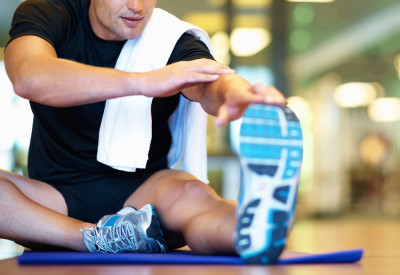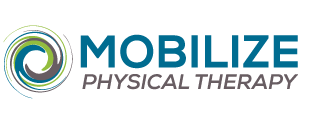The new year brings new year’s resolutions, and that means extra time at the gym with new exercise routines. However, while hitting the gym hardcore at the beginning of the year it’s important to remember that proper recovery is crucial to sustaining a long-term workout plan. When exercising, our bodies and muscles undergo stress. Our body tissues need this stress to become stronger and improve their function. Recovery is your chance to build yourself back up; it is the link between short-term, immediate benefit and long-term, lasting outcome.
The following tips can help you get the maximum benefit from your workout and reduce your risk of developing an injury.

Stretching
Stretching is an essential part of recovery, but rarely receives the time or attention it deserves. Stretching maintains the flexibility of tissues that are tight or stiff from an activity or prolonged static position. There are a variety of methods of stretching – static, dynamic, and foam rolling to name a few. Stretching should be implemented through your warm-up and cool down at the beginning and end of your workout.
Hydration and Nutrition
Proper fueling before exercise is important to optimize performance and energy, but nutrition for recovery from exercise is often overlooked. Our bodies rely upon a well-balanced array of nutrients, vitamins, and minerals to aid in rebuilding the parts of our body that have been stressed during exercise. Refueling after a workout with a well-rounded set of carbohydrates, proteins, and healthy fats will help your body reap the most benefit from your hard effort. Water is also absolutely essential to overall health. In particular, following exercise, proper hydration is key to replace the fluids that you have lost during your activity. Water also helps regulate your temperature, maintain healthy joints, and eliminate wastes that build up in your system during activity.
Sleeping
Often taken for granted, sleep is your body’s prime opportunity to recover. When the body is at rest, the repair of our muscular, cardiovascular, skeletal, and immune systems can go to work. To get the most out of your shut-eye, strive for consistent bedtimes, avoid stimulating activities in bed (like TV and electronic devices), and a comfortable environment. You may find that you sleep better on days that you exercise, and will definitely notice a more effective, pleasant exercise experience if you are giving your body the rest it needs and deserves.
Listen to Your Body
The only person who knows how your body feels after a workout is you. Allow yourself to listen to your body. This includes recognizing the signs of fatigue, pain or soreness and increasing recovery time between exercise bouts. This may also mean pushing yourself to work harder when you feel well. Don’t succumb to peer pressure at the gym. Trust yourself and what your body is telling you. When you are starting a new exercise program, don’t be afraid to ask your physical therapist for helpful hints on how your body may give you feedback after exercise, and how you should respond to that information.
For more tips, tools, and inspiring stories check out Move Forward PT on-line at www.moveforwardpt.com.
“Tips to Recover from a Workout.” Move Forward PT. American Physical Therapy Association, n.d. Web. 21 Jan. 2016.

